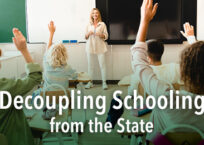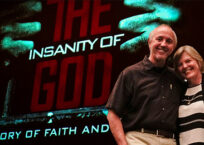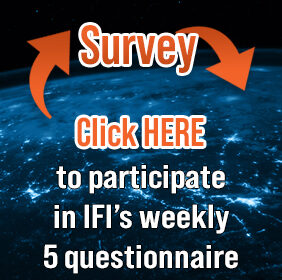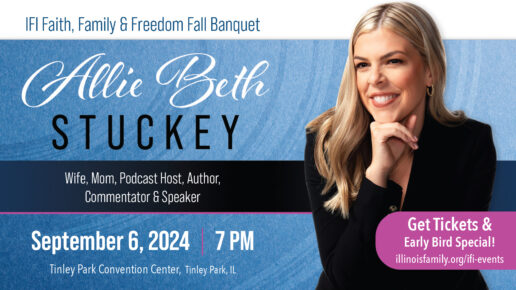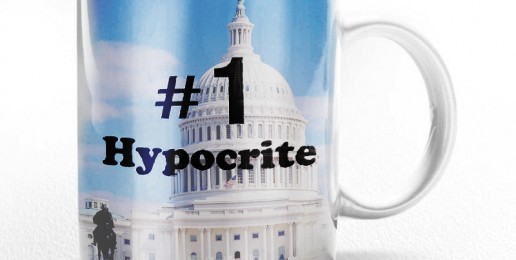
Several weeks ago, libraries across the country sanctimoniously participated in the ironic “educational” campaign: Banned Books Week, which should be called Disinformation Week.
The Office for Intellectual Freedom of the American Library Association (ALA), which sponsors Banned Books Week, has a Library Bill of Rights that states the following:
Books and other library resources should be provided for the interest, information, and enlightenment of all people of the community the library serves. Materials should not be excluded because of the origin, background, or views of those contributing to their creation.
Libraries should provide materials and information presenting all points of view on current and historical issues. Materials should not be proscribed or removed because of partisan or doctrinal disapproval.
In a 1995 interview with Beverly Goldberg, the highly respected Judith F. Krug, decades-long president of theALA’s Office for Intellectual Freedom, had this to say about the importance of intellectual diversity in library book collections:
We have to serve the information needs of all the community and for so long “the community” that we served was the visible community…. And so, if we didn’t see those people, then we didn’t have to include them in our service arena. The truth is, we do have to.
…
We never served the gay community. Now, we didn’t serve the gay community because there weren’t materials to serve them. You can’t buy materials if they’re not there. But part of our responsibility is to identify what we need and then to begin to ask for it. Another thing we have to be real careful about is that even though the materials that come out initially aren’t wonderful, it’s still incumbent upon us to have that voice represented in the collection. This was exactly what happened in the early days of the women’s movement, and as the black community became more visible and began to demand more materials that fulfilled their particular information needs. We can’t sit back and say, “Well, they’re not the high-quality materials I’m used to buying.” They’re probably not, but if they are the only thing available, then I believe we have to get them into the library. [emphasis added]
According to Krug, intellectual diversity is of such paramount importance that it trumps even quality of material. And if resources are scarce, Krug believes it is the obligation of librarians to ask for them.
In light of Krug’s comments, consider the topic on which libraries have virtually no books. Community and public high school libraries carry dozens of books, both fiction and non-fiction, on the topic of homosexuality and “transgenderism,” almost every one of which espouses or embodies liberal assumptions about the nature and morality of homosexuality. There can be found nary a one that espouses or embodies conservative assumptions about homosexuality.
If questioned about this untenable disparity, librarians will likely say what Deerfield High School’s head librarian, Lucy Kempton, said to me, which is that libraries adhere to “Collection Development Policies” when deciding what books to purchase. Collection Development Policies require that a book be positively reviewed by at least two “professionally recognized” journals. Strangely, none of the “professionally recognized” journals had positively reviewed even a single book by a conservative author on the topic of homosexuality. This raises the obvious question whether the professionally recognized journals are staffed by professionals who hold diverse views and who are committed to intellectual freedom and impartiality.
And in light of Krug’s comments, it raises the question, why are book purchases determined by Collection Development Policies. Krug stated that it is the obligation of librarians to identify gaps in their book collections and request materials to fill in those gaps. Further, if the only materials available on a certain topic are “not high-quality,” librarians still need to “get them into the library.”
I wonder if Krug’s philosophical heirs have identified the dearth of materials in both fiction and non-fiction on the topic of the “ex-gay” or “post-gay” phenomenon. And I wonder if they’re requesting such materials.
I wonder if they’re asking for materials pertaining to the serious intellectual challenges to the ontological, moral, and political claims of homosexuals and their ideological allies.
I wonder if they’re requesting materials pertaining to the negative impact of legalized same-sex “marriage” on the culture.
I wonder if Krug’s disciples are requesting materials that depict the pain of children who are created to be fatherless or motherless.
It is long past time that taxpayers demand that the hypocritical ALAfulfill its own commitments and the ideals of Judith Krug when it comes to materials that reflect conservative views of homosexuality. Intellectual diversity should trump Collection Development Policies. If ALAmembers spent less time at their annual conferences endorsing same-sex marriage, they might have more time to examine critically their own de facto censorship practices.
Taxpayers can request that libraries start filling the holes in their book collections by ordering the following books, and if the library staff brings up Collection Development Policies, taxpayers should quote Judith Krug and theALA’s Library Bill of Rights above:
- Out from Under by Dawn Stefanowicz
- Called Out by Janet Boynes
- Divorcing Marriage edited by Daniel Cere and Douglas Farrow
- The Gay Gospel by Joe Dallas
- The Bible and Homosexual Practice by Robert A.J. Gagnon
- Light in the Closet by Arthur Goldberg
- Ex-Gays?: A Longitudinal Study of Religiously Mediated Change in Sexual Orientation by Stanton L. Jones and Mark A. Yarhouse
- The Marketing of Evil by David Kupelian
- Homosexuality and the Politics of Truth by Jeffrey Satinover, M.D.
- Outrage: How Gay Activists and Liberal Judges are Trashing Democracy to Redefine Marriage by Peter Sprigg
- Marriage on Trial: The Case Against Same-Sex Marriage and Parenting by Glenn T. Stanton and Dr. Bill Maier
- The Homosexual Agenda: Exposing the Principal Threat to Religious Freedom Today by Alan Sears and Craig Osten
- Same-Sex Marriage: Putting Every Household at Risk by Matthew D. Staver
- Homosexuality and American Public Life edited by Christopher Wolfe
- Same-Sex Matters: The Challenge of Homosexuality edited by Christopher Wolfe
For more on Banned Books Week or Collection Development Policies click here and here.

